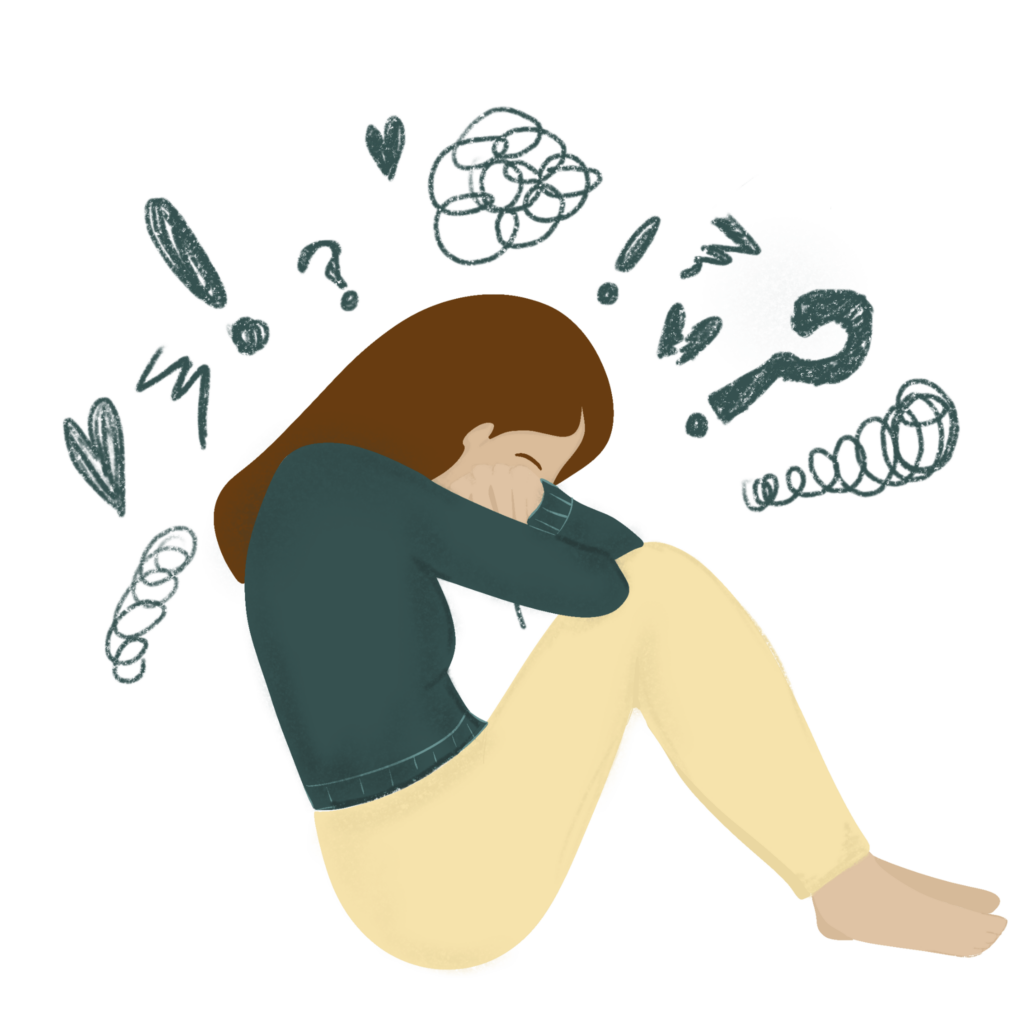
Taking a Bath After a Membrane Sweep: Precautions and Advice

It’s well known: pregnancy goes hand in hand with hormones. They orchestrate the many changes in your body. We’d like to say that the relationship between pregnant women and hormones is a peaceful love story, but let’s be realistic—it’s more like a real rollercoaster ride.
We’re here to tell you everything about the fascinating mechanics of hormones during pregnancy!
In the human body, hormones are everywhere. That’s true under normal circumstances, but even more so during pregnancy, when the entire hormonal balance changes. Let’s take a look at the four most iconic pregnancy hormones!
The undeniable star of the long list of pregnancy hormones, beta-hCG (or human chorionic gonadotropin) is secreted by the trophoblast (the future placenta!) as soon as the egg implants in the endometrium and stimulates the production of sex hormones.
Its level, measured in your blood and/or urine, confirms your pregnancy. During embryo implantation, this level skyrockets and doubles every 48 to 72 hours. Impressive? You haven’t seen anything yet!
Along with relaxin, another hormone, progesterone helps relax ligaments (especially in the pelvis, which explains the pain you may feel there during pregnancy). In fact, its relaxing effect impacts all muscles: digestive tract, blood vessels, perineum… leading to various discomforts.
Progesterone is a highly versatile hormone. It helps to:
The downside: after childbirth, the drop in progesterone contributes to the infamous baby blues. 
Like progesterone, estrogen levels skyrocket at the beginning of pregnancy and reach very high levels. Estrogens can cause the first signs of pregnancy: tender breasts, nausea, heightened sensitivity to smells…
Estrogens are also behind your shiny hair and glowing skin (hence the “you look radiant!” comments). On the flip side, these hormones increase your sensitivity to UV rays, which can lead to a dark line or pregnancy mask. Your best friend? Sunscreen.
Of course, estrogens aren’t just for your looks: they also help maintain the thickened endometrium, aiding fetal implantation, and support the development of the placenta and fetal organs.
True, we usually associate oxytocin with pleasure, love, and bonding. But during pregnancy, it’s primarily the hormone responsible for contractions!
Produced by the brain, oxytocin levels rise significantly at the end of pregnancy and especially during labor, when it signals the uterus to contract.
After birth, an oxytocin surge helps detach the placenta. Several days post-delivery, oxytocin continues to be secreted to help the uterus return to its normal size.
The WHO also recommends the routine administration of synthetic oxytocin after birth to reduce hemorrhage risk.
Oxytocin also plays a role in breastfeeding, along with prolactin, by causing the mammary glands to contract and eject milk.
As we’ve just seen, hormones go into overdrive during pregnancy and each one plays a specific role—though not without side effects on your body…
… and on your mind!
Don’t hesitate to talk about these feelings and emotions with those around you and surround yourself with supportive people throughout your pregnancy.
Want to learn more? Feel free to download the May app, where you’ll find plenty of resources to support and guide you throughout your pregnancy.
All the issues we mentioned above stem from the numerous changes in hormonal balance in pregnant women.
A hormonal imbalance occurs when there is too much (or too little) of a hormone in your blood, leading to a series of physical and mental shifts. Concretely: nausea, blues, fatigue, abdominal pain, acid reflux, constipation…
One tip: give yourself time. Amid all these changes, it’s perfectly natural to need to recentre yourself and adapt to this new state.
If only hormones affected just your body… But they also deeply impact your emotions. You may have heard that a pregnant woman experiences “psychic transparency”? Here’s what that means.
Think of a pot on the stove: under normal conditions, it simmers gently without boiling over. The water represents your emotions. It may boil occasionally, but it’s controlled because the heat is regulated.
During pregnancy, that heat is suddenly cranked to the max (thank you, hormones) and unpredictably so, meaning the pot boils over and your emotions spill out for all to see. That’s psychic transparency.
Since you’re no longer in control of the heat, it’s hard to stop the spillover. Your best ally in these moments? Communication. With someone close or a healthcare professional.
Pregnancy hormones leave you emotionally raw, hypersensitive, and sometimes distort your perception of reality. That’s okay.
Don’t hesitate to bring this up during a prenatal checkup, so you and your midwife or doctor can explore supportive solutions and, if needed, set up proper care.
Well… pretty much all the time. Whether it’s the first, second, or third trimester, hormones are constantly shifting. Still, there are a few key milestones:
➡️ Beginning of pregnancy: beta-hCG levels rise dramatically, confirming pregnancy in tests. Beta-hCG is joined by progesterone and estrogens.
➡️ End of the first trimester: the corpus luteum (that hormone-secreting structure causing all the fuss) in the ovary finally stops producing pregnancy-maintaining hormones and hands over to the placenta. Around 12 weeks, beta-hCG peaks. It then drops by 75% and stabilizes until the end of pregnancy.
➡️ Second trimester: a more pleasant phase begins. Your body slowly adapts to all the changes and the first-trimester woes often fade (like magic—or nearly). Why? Because your hormones stabilize for a while.
➡️ Third trimester: hormones activate to loosen fibers, muscles, and ligaments—so your baby can pass through the pelvis and perineum during delivery.
It’s not all sunshine, but take a moment to thank your incredible body… and maybe book an osteopath visit if needed! Around this time, hormones also put you in a hyper-alert state (a reaction from your reptilian brain).
➡️ Postpartum: after birth, hormone levels slowly return to more typical levels.
If hormones have such an effect on you, you’re probably wondering what they do to your baby… Unsurprisingly, they play a crucial role in fetal development. For example:
We invite you to revisit the four key pregnancy hormones described earlier: they all help ensure the healthy development of the fetus throughout pregnancy!
Did you know? In the first month alone, your body produces an extra liter of blood to deliver nutrients and oxygen to the baby—thanks to hormones!
Hormones in the postpartum period: it’s a vast subject. Postnatal life is a time of intense psychological and hormonal upheaval. Your hormone levels drop, and your body has to adapt—again.
Hormones, especially progesterone, are suspected to play a role in baby blues (along with sleep deprivation and the emotional impact of childbirth).
Definition: you feel happy, you laugh for no reason, you feel hopeless, empowered, want to go back in time, you’re in pain, you’re exhausted, you’re full of energy… all in one day—or even one hour.
Let’s be clear: not only is this not a problem, but it’s almost desirable. There’s nothing specific to do except accept these intense and conflicting emotions. You can also take time for yourself, care for your body, eat well, and lean on loved ones.
❕Caution! If this state lasts more than two weeks, act quickly: consult your midwife or doctor.
Another fascinating post-birth phenomenon: hormones reshape your brain (the mother’s, but also the partner’s)! With parenthood, your brain changes (thanks to a cocktail of oxytocin and prolactin) to better interpret your baby’s needs!
One brain region in particular (linked to social cognition) reorganizes itself. The goal: to develop super-parental skills (quickly recognizing baby’s cries, reading emotions on their face, interpreting their signals…). Nature is clever, isn’t it?
As you’ve seen, pregnancy is a complex phenomenon that relies on a delicate hormonal balance. In fact, many hormones are still unknown or under study!
–
Photo: Rido81
This text was translated from French by an artificial intelligence. The information, advice, and sources it contains comply with French standards and may therefore not apply to your situation. Make sure to complement this reading by visiting the May ES/UK app and consulting the healthcare professionals who are supporting you.
These resources might interest you

Taking a Bath After a Membrane Sweep: Precautions and Advice


Coloring your hair while pregnant: what precautions should you take?